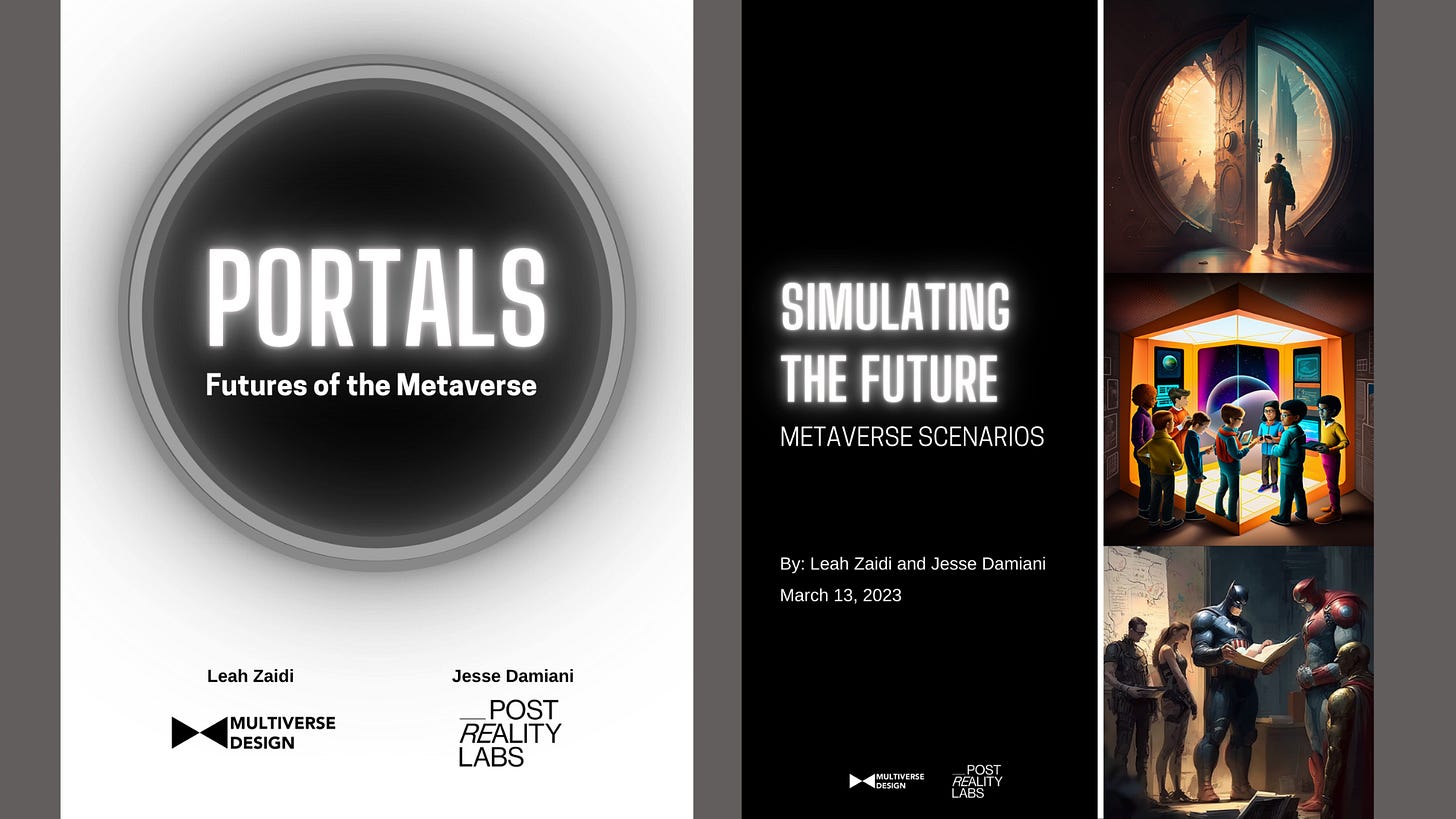It seems like some unspoken rule of the Internet: every few years, the “[X] is Dead” formula must be activated. This go-around it’s the metaverse in the crosshairs. I probably shouldn’t take the bait, but I can’t help myself.
No, the metaverse isn’t dead. I don’t say that as some grand gesture of support or rallying cry; how the metaverse fares as a marketing term or investment category are only surface reflections of a deeper discussion about the future of connectedness and embodiment in digital contexts.
My problem with critiques like Ed Zitron’s are not that I disagree with the arguments he makes on the page. In large part I agree with him: Mark Zuckerberg’s coopting of the term was (charitably) short-sighted bluster and (uncharitably) expedient for near-term shareholder interests at an otherwise fraught moment for the company. The blind frenzy that ensued across other tech giants, venture capital, and media portrayals only amplified the disorienting blur through which the term was catapulted into the public eye. And for all intents and purposes, it does appear that Meta has de-emphasized the metaverse as a marketing angle in favor of the buzzier “generative AI”—though my spidey sense says it’s more of a hibernation while necessary technologies and social fluencies catch up before a return to beating the metaverse drum.
What I find frustrating about Zitron’s argument is that he conflates the metaverse as a term with the set of ideas, practices, and developments it represents. Put another way: we might not use the term “cyberspace” much anymore, but you’d never say, “cyberspace is dead.” At one point, “cyberspace” was the container for discourse around virtual life, and it facilitated developments that continue to impact our experience online today.
Over time, its function as a driver of fresh ideas faded. Since then, different ideas and terms took center stage (remember “transmedia”?). In the early 2020s, the metaverse took the mantle in a loud way, starting with Web3 folks on Clubhouse in the stir-crazy spring of 2021 (yes, Clubhouse is the first place the metaverse conversation kicked off), mounting throughout the year until the crescendo of Facebook rebranding to Meta.
I metaphorize the metaverse as the eye of a storm: at the center there’s no consensus definition, but the storm is real. My sense is that the metaverse will continue to be the container for an important set of ideas and dialogues, but even if it’s not, they will persist through other terms. And how these develop have material impacts on all of us. In his recent book Meganets, David Auerbach puts it as such:
For all the talk of the metaverse—much of it merely a debate over what the metaverse even is—the fundamental difference between the metaverse (whatever it will be) and the internet today is not quality but quantity. The metaverse threatens to add virtual reality (fake physical space), “augmented” reality (digitally enhanced real physical space), and cryptocurrency-driven NFTs (non-fungible tokens, which are artificially scarce digital assets to buy) to the existing potent online world, but all of the metaverse's changes will amount to the same thing: more data, more connectivity, more transactions, more complexity. The movement from Web 1.0 to Web 2.0 to the metaverse and onward has not stemmed from radical new technologies. Rather, the change in online life is like the evolution of the brain, growing ever more complex until surprising new phenomena emerge purely through that complexity—along with that much less ability to understand what is going on. The metaverse, for all practical purposes, is already here, growing incessantly. We lose more control to it by the day.
I understand the impulse to dunk on Zuckerberg and Meta. I worked for many years as a journalist covering XR—including predicting Facebook’s metaverse play back in 2016—and I know how irritating it is to be inundated with hype about the “next big thing.” And of course there’s a righteous thrill in calling out the powerful for their misdeeds.
But taking such a narrow view of the metaverse does a disservice to audiences. Technology develops on long, messy timelines, full of false starts and transient terminology. But technology is a major vector for power in contemporary life, and conditioning audiences to laugh off arenas poised to impact their lives, rather than critically grapple with the underlying ideas, is at best a waste of time.
In writing the futures reports PORTALS and Simulating the Future, Leah Zaidi and I tried to take a measured but expansive approach to how the metaverse would impact our lives in the future, using her Strategic Worldbuilding methodology. Our intention was to engage critically with the topic without endorsing the ways the term was being wielded for hype.
I bring it up here as a shortcut to some of the counterarguments I’d make to the notion that the metaverse is dead. Yes, a lot of the developments related to the metaverse post-Meta rebrand have been cringey. But we’re fools if we let that stupefy us into disregarding all the social, cultural, economic, and even political energy that was activated over the world as a result. Better that we acknowledge that it will determine the shape of our digital lives for years to come, and try to use whatever agency we have to influence it toward humane outcomes.




